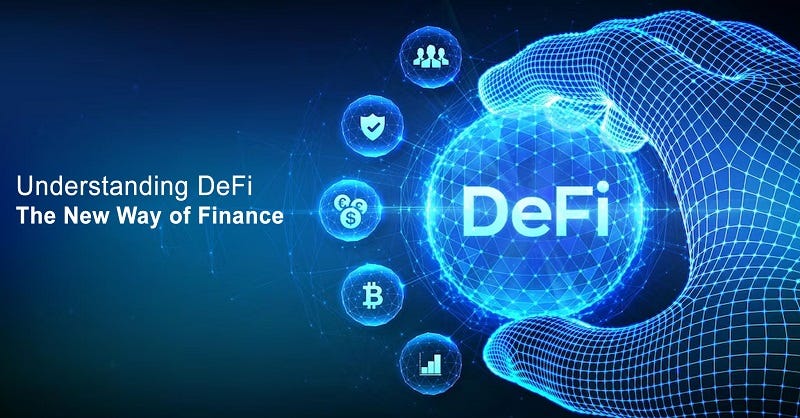
Blockchain technology has revolutionized finance. It has made faster transactions simpler and given access to quite a lot of financial services across the globe.
Blockchain technology is changing the way people view money and other aspects of life. At the core of all, blockchain can be thought of as a digital record book. The book is secure through the dissemination of information in a network. This makes it impossible to alter or hack people’s trust. Blockchain is becoming increasingly a strong tool in finance and other areas.
With blockchain, all processes involving money and finance are faster and more secure. For instance, it normally takes days and is extremely costly to send money across borders. Transactions with blockchain happen in a matter of minutes with lesser transactional fees. This allows people to use digital, cash-like currencies without needing a bank. It could be life-changing for those without access to traditional banking.
Blockchain in Finance
Blockchain technology is bringing massive changes in the financial world. It helps make the pace of payment quicker and lower costs. Let’s discuss it in detail:
Cryptocurrencies and Digital Currencies
Examples of such money over the Internet include digital currencies like Bitcoin. You do not need to use a bank for sending or receiving this money, which is different from regular money. You can make rapid payments with ease without having to wait for ages. This has helped people who would like to pay bills online or send cash to friends and family.
These digital currencies have also made investment easier for anyone, anywhere, without needing a lot of money or going to any bank. Anyone can easily buy small amounts of these cryptocurrencies. Some have even reaped large benefits, but at the same time, it’s a gamble-like risk. People still believe that digital currencies change the way money is used.
Cross-border Payments
Usually, sending money to a different country takes a lot of time and money in the form of bank fees. People have to wait for days, and extra money is even taken from both the sender and receiver. This creates a huge problem in areas where businesses need quick transportation.
This is a problem that blockchain technology has been contributing to solving. Systems like Ripple have made cross-border money transfers fast and inexpensive. What used to take days can now take mere minutes. This will be highly useful for people who work in other countries and send some of their money back home. And also companies that trade all over the world.
Smart Contracts
Smart contracts are usually digitally enabled contracts written as computer code. The smart contract is designed to execute the contract when its conditions are met automatically. There is no human involvement. Suppose somebody lends money; the smart contract can help. On the due date, the repayment is automatically deducted. It can also send reminders for due payments. This speeds up the financial processes at all levels and simplifies them.
They come in handy because they do not need people or companies to manage them. Smart contracts reduce the chances of mistakes. They help handle loans or insurance, among other things, effectively. While they are being set up, they require extreme care in their coding.
Decentralized Finance (DeFi)
DeFi means how you use financial services without need of a bank. You can borrow, lend, and trade money directly with other people on DeFi platforms. All you need is access to the Internet, and there are no middlemen that skim part of your transactions. In this way, it’s easier to provide people from all over the world with access to financial tools.
While DeFi is exciting, there are even dangers to consider. Given blockchain and smart contracts, there is an opportunity for hackers to break in. If there is a bug, there is no bank to fix it. Thus, as much as DeFi opens new vistas, people also have to be cautious and understand the dangers.
Tokenization of Assets
Asset tokenization means taking something with value. This can be a house or a work of art. Then, it is digitally represented on the blockchain in the form of tokens. They are representations of portions of the asset. So, instead of having large sums to be able to buy an entire asset, they can buy fractions. This means that more and more people can invest in previously unliquid investments.
With blockchain, these tokens become readily tradable. You can quickly sell or buy parts of these assets without waiting for paperwork or the approval of a bank. That makes investment simpler and more flexible. It also contributes to getting money from investments faster if one needs it.
Benefits of Blockchain in Finance
- Better security: Blockchain protects financial information and renders it irreversible. Thus, for hackers to alter critical data, this becomes all the more difficult.
- Faster transactions: People can send money in the blink of an eye. They do not need to wait for days on the ground that the bank has approved that particular transaction.
- Lower costs: There are fewer intermediaries involved, like banks. This helps save money on the price arising from commissions and fees.
- More transparency: All the transactions within the blockchain can be verified. This is what builds trust.
- Financial Inclusion for All: Even those who do not maintain any bank account can also avail themselves of financial services. They need to have access to the Internet.
- Challenges and Limitations
- Regulatory Issues: Rules vary in different countries. This makes it hard for blockchain to work everywhere.
- Vulnerabilities of Security: Sometimes, attackers find their way to attack. This can happen even with smart contracts.
- Slow Networks: Blockchain sometimes gets expensive when many people use it concurrently.
- Complexity: Blockchain technology is no piece of cake, and only some know their way around it.
- Old Systems: Many banks and companies are still working with old systems. It still needs to be adapted to work with blockchain.
Conclusion
Blockchain is going to change the way we use money and conduct business. For example, it will speed up money transfers. It will increase access to a broader array of financial services. There are still some problems that need to be taken into consideration. They include security risks and the development of better rules all over the world. Even with these problems, blockchain is going to shape our future even more while improvements continue to happen.




